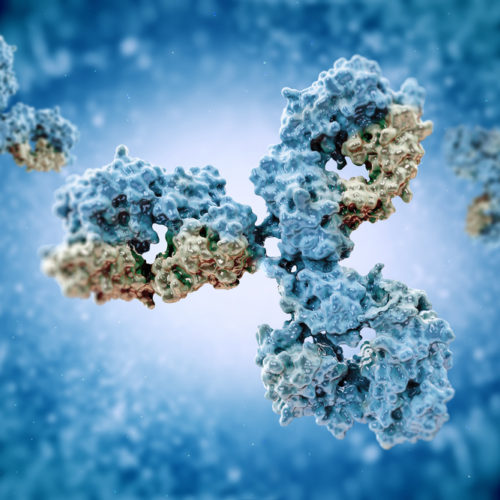This post was originally published on this site The U.S. Food and Drug Administration has placed a partial clinical hold on Xencor’s Phase 1 clinical trial of XmAb14045 for acute myeloid leukemia and other CD123-positive blood cancers because of two patient deaths that appear to be possibly related to the investigational therapy. A partial clinical hold…
Author: Chris
FDA Grants Priority Review to Keytruda for Advanced Small Cell Lung Cancer
This post was originally published on this site The U.S. Food and Drug Administration has accepted Merck‘s application seeking accelerated approval of Keytruda (pembrolizumab) for the treatment of advanced small cell lung cancer (SCLC) patients who failed at least two prior therapies. The supplemental biologics license application — based on results from the Phase 1b KEYNOTE-028 trial (NCT02054806) and the ongoing KEYNOTE-158…
Specific Gene Mutations Predict Success of Immunotherapy in Glioblastoma Patients, Study Reports
This post was originally published on this site Testing for specific gene mutations may help predict the patients with glioblastoma who will respond to immunotherapy, according to new research. The findings also suggest a therapeutic target that could lead to improved immunotherapy in these patients. The study with those findings, “Immune and genomic correlates of…
FDA Approves Keytruda for Melanoma Patients After Tumor Resection
This post was originally published on this site The U.S. Food and Drug Administration has approved the use of Keytruda (pembrolizumab) as a treatment for melanoma patients with stage 3 disease — cancer cells have spread to the lymph nodes but not to distant organs — who have undergone complete resection of a tumor. The approval…
First Mesothelioma Patient Dosed in Phase 1 Trial of Curis’ CA-170
This post was originally published on this site The Phase 1 trial evaluating Curis‘ investigational immunotherapy CA-170 for advanced cancers has dosed its first mesothelioma patient, the company announced. The trial (NCT02812875), currently enrolling participants, will test the therapy in adults with advanced solid tumors, including mesothelioma, or lymphomas who failed to respond to standard therapies. CA-170 is…
Imaging Agent May Provide Early Info About Benefits of Hormone Therapies for Breast Cancer
This post was originally published on this site A new imaging agent that successfully measures changes in progesterone receptor (PR) levels may be used to determine if a breast cancer patient will respond to hormone therapies targeting the estrogen receptor (ER), a study suggests. The study, “Sensitivity and Isoform Specificity of 18F-Fluorofuranylnorprogesterone for Measuring Progesterone Receptor…
How to Tell Your Kid You Have Cancer: 7 Tips
This post was originally published on this site The hardest part of cancer? That’s a loaded question, but telling my kid about it ranks up there at the top of that list. Lauren had just turned 10 when my husband and I found a lump in my breast. A few days later, an oncologist…
Cellular Barcoding Sheds Light on Spread, Drug Resistance of TNBC
This post was originally published on this site Very few cancer cells within a triple negative breast tumor (TNBC) are able to spread and grow in distant organs (metastasize), although most are able to shed from the original tumor and be resistant to therapy, a new technique called cellular barcoding has shown. Combining this advanced tool with…
Pfizer’s Biosimilar Zirabev Approved in E.U. for Advanced Breast, Other Cancers
This post was originally published on this site Metastatic breast cancer patients in the European Union will have the possibility of being treated with a biosimilar of Avastin (bevacizumab), following the approval of Pfizer’s Zirabev (bevacizumab) as a more affordable treatment with similar efficacy to the original. Zirabev is the second biosimilar to Avastin approved by the…
Sacituzumab Govitecan Shinks Tumors in One of Three Metastatic TNBC Patients, Trial Shows
This post was originally published on this site One in three women with metastatic triple-negative breast cancer — all of whom had received at least two prior treatments — saw their tumors shrink after receiving Immunomedics‘ investigational treatment sacituzumab govitecan as part of a Phase 1/2 trial, a new study shows. In addition to increasing response rates, the treatment…











